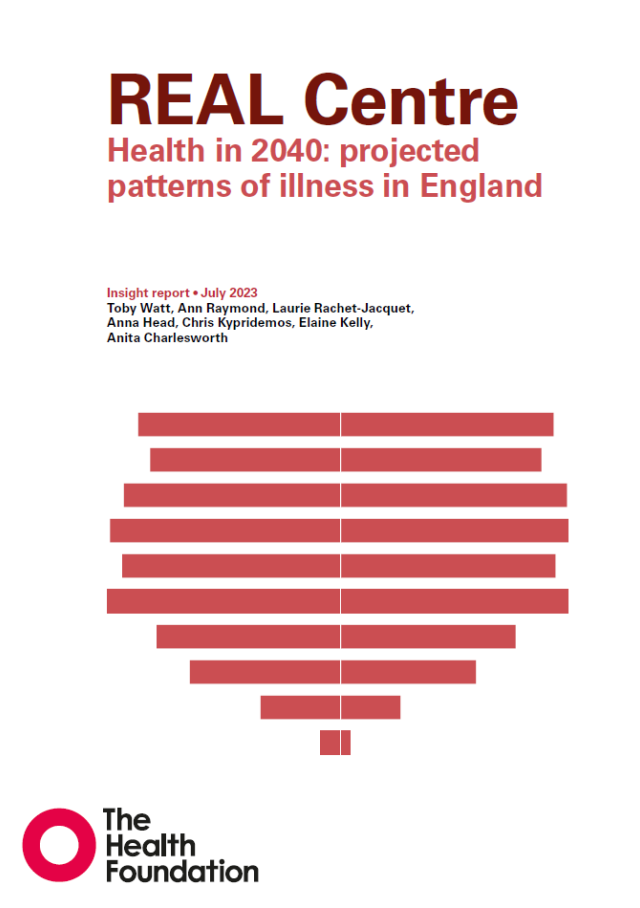Health in 2040: projected patterns of illness in England
July 2023

Key points
- 9.1 million people in England are projected to be living with major illness by 2040, 2.5 million more than in 2019. This is an increase from almost 1 in 6 to nearly 1 in 5 of the adult population.
- Most of this rise is the result of an ageing population – as life expectancy increases and the baby-boomer generation reaches older age. While living longer is something to celebrate, this will have profound implications for the NHS, social care and other public services.
- We have known for some time that an ageing population increases the demand for health services. This report gives us an idea of the scale going forward. The challenges this creates are not unique to England or the UK – as many high-income countries are ageing at a similar rate.
- Much of the projected growth in illness relates to conditions such as anxiety and depression, chronic pain and diabetes, which are predominantly managed in primary care and the community. This reinforces the need for investment in general practice and community-based services, focusing on prevention and early intervention to reduce the impact of illness and improve the quality of people’s lives.
- The number of people living with major illness is projected to increase by 37% – over a third – by 2040, nine times the rate at which the working age population (20–69-year-olds) is expected to grow (4%). This would create additional pressures on us all to care for and fund a growing population with high health and care needs.
In January 2024, the Office for National Statistics (ONS) published updated national population projections by age and sex. This addendum shows how the updated ONS population projections affect our projections from Health in 2040.
Produced by the Health Foundation’s Real Centre in partnership with the University of Liverpool, this report aims to support policymakers prepare for the future by looking at patterns of illness over the next two decades. The analysis lays out the potential scale and impact of the growth in the number of people living with major illness as the population ages, assigning scores to 20 conditions based on how likely the illness is to affect people’s use of primary care and emergency health services and likelihood of death.
The challenges of improving care for an ageing population and enabling people to live independent lives for longer are not unique to England, with countries around the world facing similar pressures on their health services. However, with the NHS already under unprecedented strain, the findings point to significant challenges ahead and questions about how care should be delivered in future.
There is no silver bullet to reduce the growth in the number of people living with major illness. But the report's projections underline the need for a long-term plan to reform, modernise and invest in the NHS. They also demand a bold, new approach that invests in the nation’s health and wellbeing, placing it on a par with increasing economic growth and tackling climate change as one of the defining challenges of our time.
Cite this publication
Further reading
Further reading
Work with us
We look for talented and passionate individuals as everyone at the Health Foundation has an important role to play.
View current vacanciesThe Q community
Q is an initiative connecting people with improvement expertise across the UK.
Find out more


